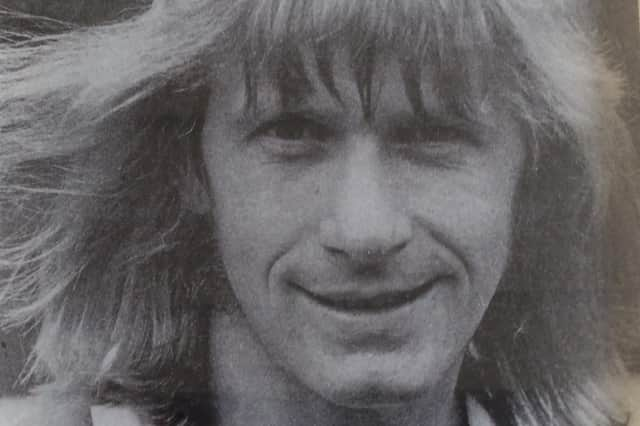Obituary: John Fitzpatrick, footballer


John Fitzpatrick was a highly regarded Manchester United footballer and member of that elite club of Scottish players who possessed a European Cup winner’s medal. Although the Aberdonian did not play in the 1968 Wembley final when United defeated Benfica, his contribution in earlier rounds persuaded manager Matt Busby to award him one. During United’s defence of the trophy in 1969 he played in four ties, including both quarter final legs and first leg of the semi-final against eventual winners A.C. Milan in the San Siro stadium.
But for John’s career being cut short through injury when 26, he would undoubtedly have gone on to greater success and play more than the 147 games he did for the Old Trafford side alongside household names like George Best, Denis Law, Bobby Charlton and others. The premature end to his playing days and the fact that he never played professionally in Scotland meant he was probably not recognised here to the extent he deserved. A versatile, tenacious player who, as it was said, “enjoyed a tackle", he also brought tactical nous and vision to his game.
Advertisement
Hide AdAdvertisement
Hide AdJohn Herbert Norton Fitzpatrick was born in Aberdeen, the second child of John and Alexina (nee Isaac), brother of Ina, David and Stuart. His father was a trawlerman and John was brought up in the old fishing village of Footdee – “Fittie” as Aberdonians call it – where the River Dee joins the North Sea. He attended St Clement’s primary school and thereafter Frederick Street Secondary, where his sporting potential as a footballer and runner came to the fore.
Playing for local side, Aberdeen Thistle Lads’ Club, he was spotted by well-known scout Archie Beattie, who had already sent several local youngsters to Manchester United, including Denis Law. After a successful trial John was about to sign on the dotted line when in his last game for Lads’ Club he broke an ankle and feared his chance had been lost. However United stuck by him and he joined the club in 1962 where he struck up a friendship with fellow apprentice George Best.
To bypass regulations then prohibiting employment of youth players as professionals, the club found “jobs” for them as electricians in a wealthy fan’s business, but after clocking in each morning they spent the rest of the day at the training ground and were often together in the evenings.
John’s first success came as a member of the team which won the F.A. Youth Cup in 1964, a competition then taken very seriously, as reflected in the two legged semi-final attendance of 47,000 against rivals Manchester City. The Cup was clinched against Swindon Town by an aggregate of 5-2 when teammates included Best, Jimmy Rimmer, David Sadler, John Aston and fellow Scot Jimmy Ryan, all of whom later made a mark in the game.
Initially a midfielder occasionally playing up front, it was difficult for John to nail down a regular first team place due partly to injuries and partly because of the quality of competition from such as Pat Crerand and Nobby Stiles.
He made his first team debut in February 1965 against Sunderland and later that year, in October, made history by becoming United’s first substitute, against ‘Spurs, replacing fellow Aberdonian Law. Occasional appearances followed until, in the ‘67/68 season, he made 21, appearing twice in the successful European Cup run, against Sarajevo and in the quarter final against Gornik Zabrze in front of 100,000 fans in Poland.
By next season he was an established first team regular, appearing four times in the European Cup , including that semi-final against Milan when he was sent off for retaliation, having allegedly been spat at by an opponent.
Latterly he played increasingly at full back but appearances suffered because of injury problems, particularly after a “50-50 challenge” with Johnny Giles of Leeds United, which required four operations on his knee. Determined to continue, he managed six games in the 1972/3 season but medical advice effectively obliged him to retire, which he found devastating. A total enthusiast, he loved his time at Old Trafford, often remarking “every match was like a cup final when you played for Manchester United”.
Advertisement
Hide AdAdvertisement
Hide AdHis adjustment to life post football was helped by a cheque from the club for £20.000, a considerable sum then and a much appreciated gesture. In 1967, when back in Aberdeen on holiday, he met Barbara Simpson at the city’s Beach Ballroom and a year later the couple married. They enjoyed 52 years of happy and fulfilling marriage, during which they had daughter Claire and lived mostly in Cults.
After an apprenticeship in the wine importation business, John, with Barbara’s collaboration, set up his own company which flourished in Aberdeen’s affluent oil industry economy, eventually trading as The Wine Kist.
An enthusiastic golfer and always a keen football fan, in the 1980s he managed Highland League teams Buckie Thistle and Huntly, winning the Aberdeenshire Cup with the latter, and he was also a football pundit for Radio Northsound.
He loved spending time with his family especially his grandchildren, twins Louis and Olivia, and was supportive of Louis’ football potential as a member of Dundee’s Youth Academy. While combative onfield, off it John was a friendly, affable and engaging individual who was widely liked. He is survived by his wife, daughter, brother David and grandchildren